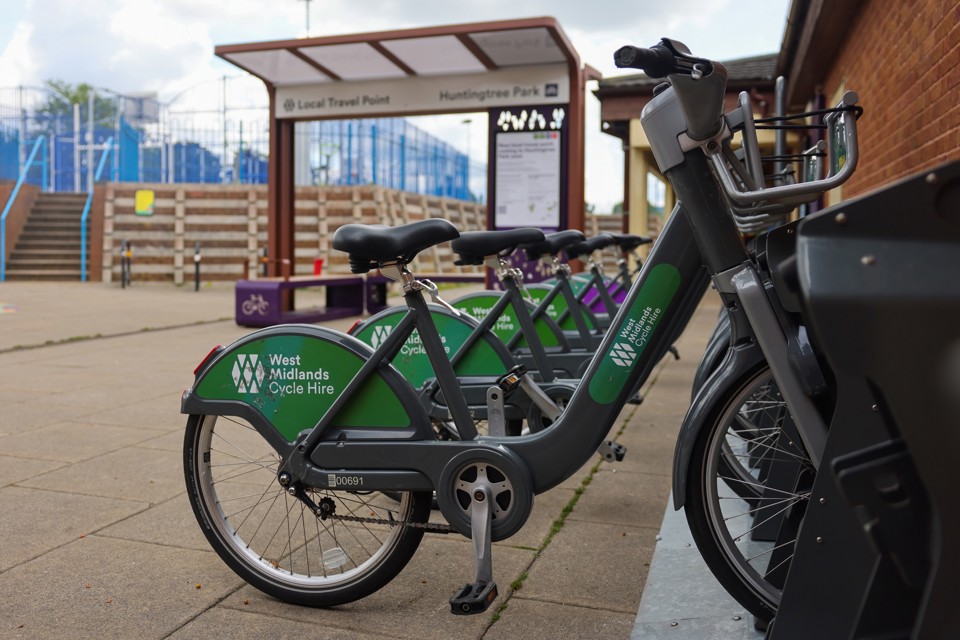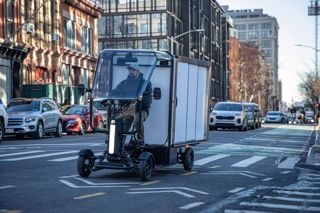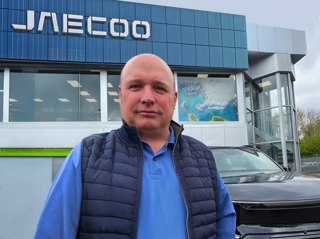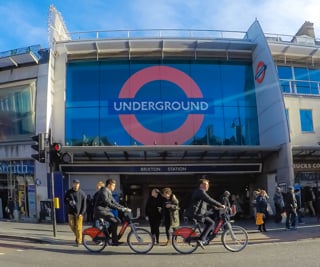The West Midlands will play host to a network of mobility hubs as part of a pilot project backed by a national charity for shared transport.
The Local Travel Points scheme is creating three mobility hubs in the town of Halesowen near Birmingham, with the aim of reducing the need for private cars and improving air quality.
Two of the three hubs launched in August and have now been awarded gold standard accreditation by the charity Collaborative Mobility UK (CoMoUK).
Mobility hubs bring together a range of transport options and community services in a single, attractive place, making it easier for people to travel without using private cars.
Placed strategically in key travel corridors, they seamlessly connect schemes such as shared bikes, e-scooters and car clubs with public transport and other active travel options.
The mobility hub concept is widely applied in many European and North American cities, but this will be the first time in the UK that a network has been created in one area.
The one-year pilot project is being delivered by Transport for West Midlands (TfWM), working closely with Black Country Transport and Dudley Council.
It is part of the region’s Future Transport Zone, a trial programme funded by the Department for Transport (DfT).
All three hubs will offer services including bike hire, bike repair and storage, car clubs, EV charging, travel information, parcel lockers and a canopied social space with seating.
They have been specially designed to fit inside existing parking bays and in small public spaces, allowing the concept to be rolled out to any neighbourhood seeking green and active travel options.
Richard Dilks, chief executive of CoMoUK, said: “These small, simple and flexible pieces of transport infrastructure have proved very successful in other parts of the world and there’s every reason to roll them out here too.
“Mobility hubs reclaim space for sustainable, green and convenient modes of transport that is usually taken up by private cars, helping to cut traffic congestion and carbon emissions in the process.
“They also make it far easier for people to get around by creating seamless links between public transport and schemes such as shared bikes, e-scooters and car clubs.
“We congratulate TfWM on its ambitions in this area and hope its example will be followed by local leaders in other towns and cities who want to improve their urban environments.”
























Login to comment
Comments
No comments have been made yet.